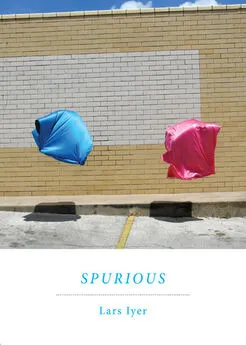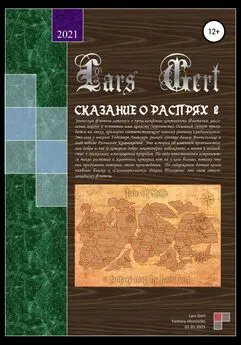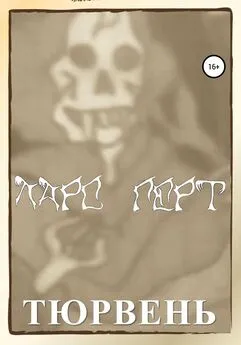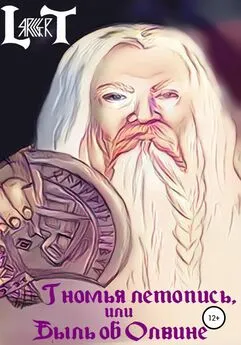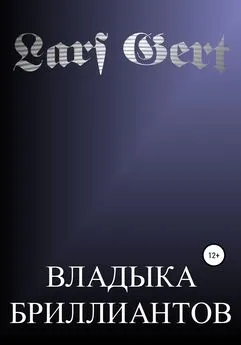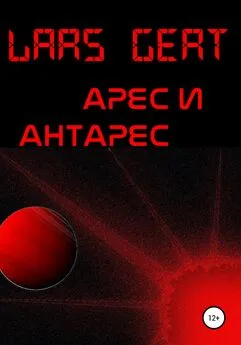Lars Iyer - Spurious
- Название:Spurious
- Автор:
- Жанр:
- Издательство:Melville House
- Год:2011
- ISBN:нет данных
- Рейтинг:
- Избранное:Добавить в избранное
-
Отзывы:
-
Ваша оценка:
Lars Iyer - Spurious краткое содержание
In a raucous debut that summons up Britain's fabled Goon Squad comedies, writer and philosopher Lars Iyer tells the story of someone very like himself with a "slightly more successful" friend and their journeys in search of more palatable literary conferences and better gin. One reason for their journeys: the narrator's home is slowly being taken over by a fungus that no one seems to know what to do about.
Before it completely swallows his house, the narrator feels compelled to solve some major philosophical questions (such as "Why?") and the meaning of his urge to write, as well as the source of the fungus… before it is too late. Or, he has to move.
Spurious - читать онлайн бесплатно полную версию (весь текст целиком)
Интервал:
Закладка:
We know what genius is, says W. aphoristically, but we know we’re not geniuses. It’s a gift, he says, but it’s also a curse. We can recognise genius in others, but we don’t have it ourselves.
Max Brod, so unselfish in his promotion of Kafka, yet so given to a vague and general pathos — to amorphous stirrings wholly alien to the precision of the writing of his friend — has always served as both our warning and our example.
What could he understand of Kafka? Weren’t his interpretative books — which did so much to popularise the work of his friend — at every turn, a betrayal of Kafka? But then again, didn’t Kafka depend upon his friendship and his support? Didn’t Kafka lean on his friend in times of despair and solitude?
We too, W. and I decided long ago, must give our lives in the service of others. We too must write interpretative essays on the work of others more intelligent and gifted than we will ever be. We too must do our best to offer support and solace to others despite the fact that we will always misunderstand their genius, and only bother them with our enthusiasm.
W. finds me in a despondent state on the phone. Yet another of my escape bids has been thwarted. Yet another dream completely dashed. My lines of flight always go splat! against the wall, don’t they? W. observes. I’m like the cartoon mouse who hits the wall and then slides down it, he says. It’s painful to see, but also funny.
‘That look on your face!’, says W. And then: ‘Everyone can see it coming, even you can see it coming, but you run up against the same wall, don’t you? Every time! The same wall!’
We’re bottom feeders, W. always insists. We survive on scraps others leave us. That we can survive from day to day is miracle enough, W. says, let alone have any dreams of escape. We’re not even opportunists, he says, we’re too stupid for that.
We like to pretend we have some control over the circumstances of our lives, W. says, whereas in reality we have no control whatsoever. W. understands all this very well, he says. He learned it from me, which is why he’s surprised by my lapse.
We all have to face it at some time or another, W. says, there’s nowhere for us to go. No up and no down. We don’t have a chance. As soon as I realise this, W. says, something may be possible. But then again, nothing may be possible after all.
W. has wheedled £2,600 from some academic fund or other. It’s time to give something to the world, he says, rather than taking . Because that’s what we always do, he says, we take from the world.
We should send the money to Béla Tarr! Send it all to him! Béla Tarr’s our leader. How long have we been waiting for a leader? But there he is, working in Hungary, on the central plain, a long way from us. No doubt his producers have deserted him. No doubt he’s lost another cinematographer … We’re agreed: he needs our support, and we need his leadership.
But how are we going to get the money to Béla Tarr? Should we go to Hungary ourselves? My God, says W., what would he make of us? Two buffoons on the central plain! What would he think? Isn’t life hard enough for him as it is?
He uses non-professional actors, says W. of Béla Tarr. We talk of the great speech in Damnation about coal scuttles and suicide. It’s the best scene I’ve ever seen in a film, I tell him. He agrees. And the bit in the mud with the dog, with Karrer on all fours barking at the dog. Nothing better. Because that’s where we’ll end up — in the mud, covered in mud, barking! At each other, if no one else! Barking — in the mud!
W. says he was so alone over Christmas he forgot how to talk. — ‘I’m not like you’, he says, ‘I don’t need people’ .
He’s written about Spinoza, says W. What have I written about? He sends me his lecture notes. He sends me a paper by someone cleverer than us. He sends me his introduction to a special edition of a journal. That’s what he’s been doing. He’s been busy. Not like me. — ‘I’ll tell you what your problem is’, says W., ‘you’re lazy! Lazy!’
Then W. tests me on Spinoza: What is a mode? What’s a substance? What’s an attribute? I tell him the Ethics is too hard. Get the Routledge Guidebook to Spinoza’s Ethics , W. tells me. — ‘But that’ll be too hard for you, won’t it? Get the Idiot’s Guide to Spinoza , then. But that’ll be too hard, too. Start with these letters on a piece of paper: S-P-I-N-O-Z-A . Ponder that in your stupidity’.
‘How’s your damp?’, W. asks. ‘Tell me about your flat again. It’s shit, isn’t it? You’ve got the worst flat of anyone I’ve ever met. My God, I don’t know how you live there. What’s causing it? Do you have any idea?’
It’s a mystery, I tell W. I called six damp proofing companies in turn, I tell him, one after another. The water’s getting in behind the rendering, said one. You’ll have to strip it off, repoint the brick, and render it again. It’s the holes in your wall, said another, referring to the long scar left where the lead pipe had to be pulled away.
It’s your hopper, said yet another, showing me a thick patch of green on the top of the pipe through which it drained. Ah yes, I said, I tell W., impressed at his observational powers. Do nothing, said another; let the wall breathe. But I need to breathe! I tell W. I need to take a single non-damp breath! I’ve got spores in my lungs! They’re coated in mildew!
A fifth pressed his nose to the brown plaster in the bathroom. He put his hand on its wet surface. He sniffed. It’s condensation that’s causing it, he said. Condensation, I said, behind all this? The flat all around us, brown-walled with damp. People underestimate condensation, said the damp whisperer. In a flat like this, with the double-glazing, there’s nowhere for water to escape.
He told me about the dew point, I tell W. He told me how the wall comes forward to offer itself to the touch of condensation. I imagined a runner breasting the finish line, I tell W. I imagined a swordfish leaping from the sea.
But the sixth interpreter said he thought it was penetrating damp, the sort that permeates through pasty brick and the gaps between bricks. Penetrating, coming through, a brown, persistent wave …
Damp calls for a Talmudic inquiry; I go from one wise man to another, from one to another, but none is really certain of the Law.
One of us is dragging the other down, W. and I decide, but which one? Is it him or me? His friends say that since he’s been hanging out with me, his work’s really gone downhill. People are avoiding us, says W. They can smell failure.
I’m going to be found out, that’s what I worry about, says W. Someone’s going to find out about me and shoot me, W. says, it’s only right. ‘How have I survived this long?’ , W. says, ‘that’s your only thought. By what miracle have I survived?’
W. has thought up many excuses for me. He’s had to account for me at length to his friends. Explain him! they demand. What’s going on? And W. has to explain, as best he can, how it all started, how our collaboration began.
But what can he say, really? There’s a limit to every explanation, which is to say the sheer physical fact of my existence. — ‘There you are’, says W. And before that fact, what can anyone do but shrug?
‘Thought should bear upon what matters most’, says W. as we look out to sea. ‘What matters most to you?’, asks W. ‘Your dinner? Alcohol? Chav mags?’
What matters most, W. muses, are the coming End Times. The ecological disaster and the financial disaster. — ‘They’re nearly upon us’, he says. ‘Are you ready for the End Times?’ Is he? Least of all him, W. says. Least of all us.
We’ll be the first to go under, W. says. The very first. He’ll welcome it, says W., as judgement for our miserable lives and the immensity of our failure.
‘You’re never witty’, says W., ‘that’s a sign of intelligence: wit’. W. says he is sometimes witty, but, more generally, he’s never witty. I never bring it out in him, W. says. I don’t make him more intelligent.
W. is more intelligent than me, he decides. But what about those illuminated moments when the clouds part, and I have ideas? It’s true, I do have moments of illumination, W. grants, but they are sporadic and lead nowhere.
Sometimes, W. concedes, it’s as if I have ideas. I once spoke to him very movingly about the Phaedrus , for example, and the reason why Socrates had to leave the city to talk to his friend.
W. immediately lays claim in his essays to any idea I might have. I would do the same, he says. But of course, my ideas are always wrong. They’re full of pathos, he says, and they sound correct, but in fact they are no such thing. — ‘You always get the Greek wrong. Always’.
But sometimes, for a moment, the clouds do clear. — ‘You manage to speak sense’, says W., ‘or something like sense’.
‘There was that time in the pub in Oxford’, W. remembers. ‘We all fell silent and listened in wonder. Not to what you said, which may or may not have been sensible, and in fact probably wasn’t — it was probably the usual pathos and hot air — but that you could say it’.
‘You of all people. No one expects it of you. Quite the opposite in fact. Which is why it’s so surprising’. W. himself was amazed. And there was that time on the long pier at Mount Batten. — ‘The clouds parted. You spoke sense for nearly an hour’. What did I speak about? W. can’t remember. But he’d been amazed, he remembered that.
‘Write it down! write it down!’ W. often cries during my moments of illumination, but when I read back my notes, I find only incomprehensible scrawls and random words without sense.
When I die, W. says, he’s going to be my literary executor. Delete, delete, delete, that’s what he’s going to do.
Which one of us is Kafka and which Brod? W. muses. We’re both Brod, he says, and that’s the pity of it. Brods without Kafka, and what’s a Brod without a Kafka?
We are both Brod, W. says, and Brod for one another. When an ass looks into the gospels, no apostle looks back; when Brod looks into Kafka, it’s only Brod who looks back. I am his Brod, W. tells me, but he is my Brod, too.
I am his idiot, but he is mine, and it’s this we share in our joy and laughter, as we wake each day into the morning of our idiocy, wiping the sleep from our eyes and stretching.
‘These are the last days’, says W. ‘It’s all finished. Everything’s so shit’, says W., ‘but we’re happy — why is that? Because we’re puerile’, he says. ‘Because we’re inane. It saves us’, W. says, ‘but it also condemns us’.
We’ve been singled out for something, W. has decided. We’ve been marked. Look at us in our flowery shirts, and everyone else slim and wearing black.
We’re men of the end, W. says. Do we take nothing seriously? Not even ourselves. Least of all that, says W.
W. reminds me of when I inspected his teaching. He drew diagrams for the students, two stick men. What was he explaining? Hegel and religion, he thinks. — ‘This is Lars’, he said, and drew a tiny cock on one of the stick men, ‘and this is me’, he said, and drew a huge cock on the other.
‘Why do you think we’re so puerile?’, he asks me later. We’ve always cursed our sense of humour. We’re not witty, we know that. It lets us down. We disappoint everyone.
W.’s got a higher IQ than me, he’s decided. A few points higher: that makes all the difference, he says. Intellectually, he stands slightly higher than I do; he has a wider view, a greater panorama. But perhaps this is why he despairs more than I do, and has a keener sense of his failure.
Читать дальшеИнтервал:
Закладка:
